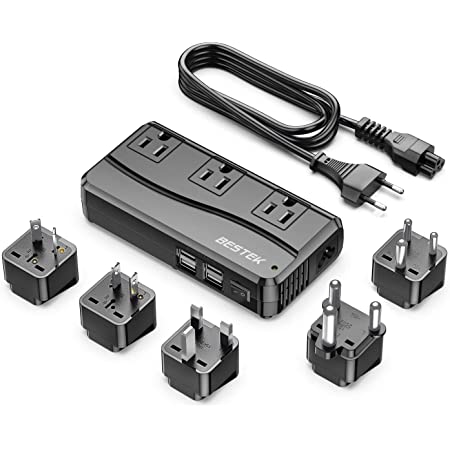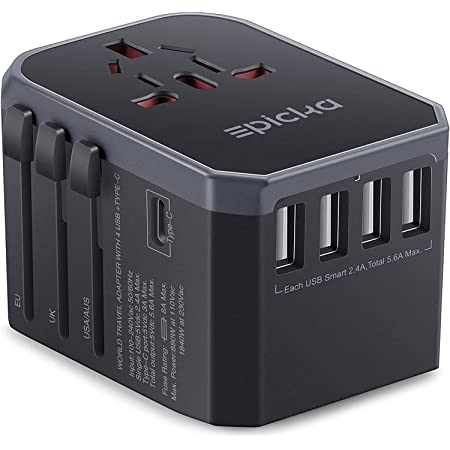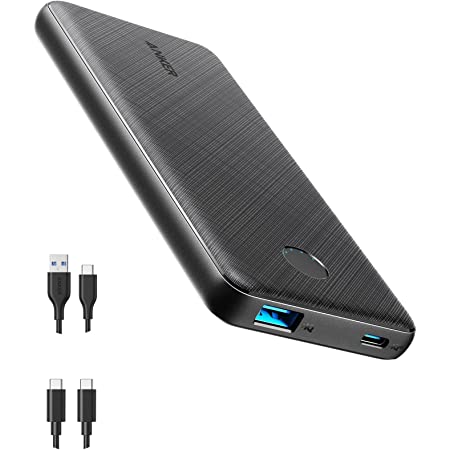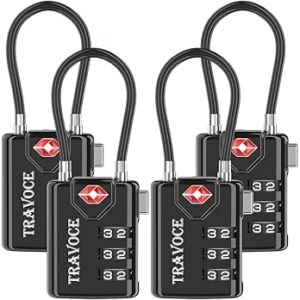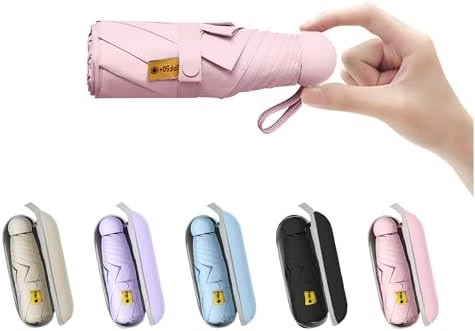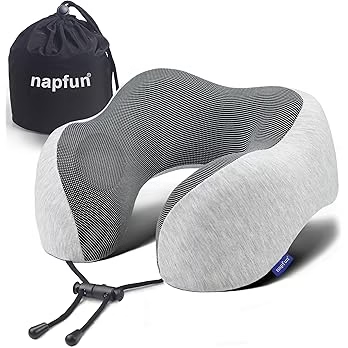Plug For Egypt: What You Need To Know
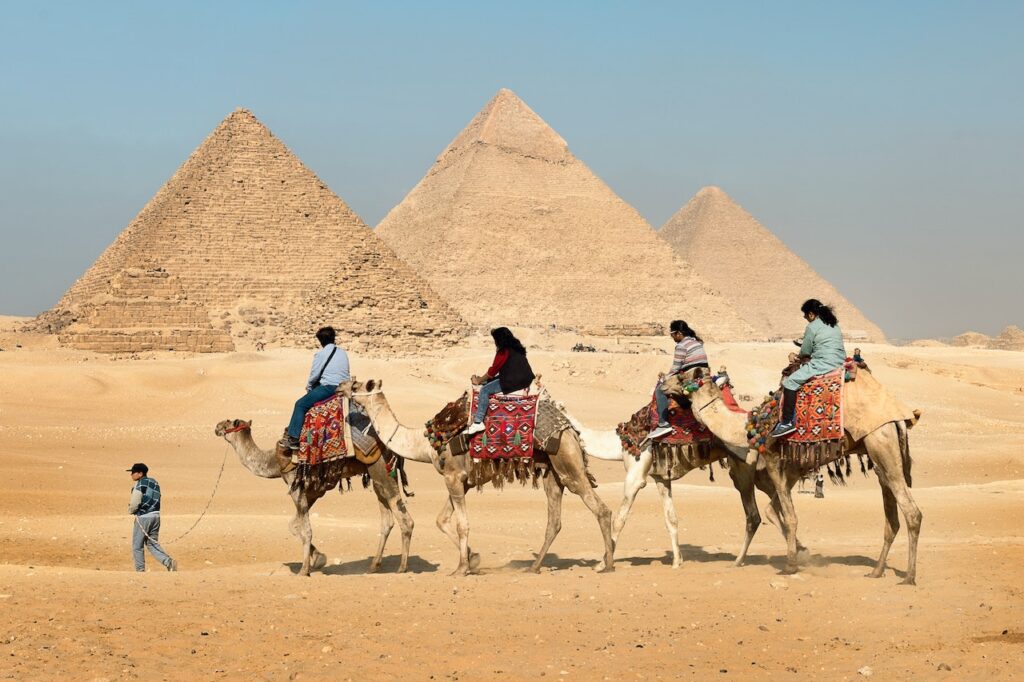
What is the plug for Egypt? Before you travel, check the information below to make sure your electronic devices are compatible with the outlet type and voltage.
Electrical Summary
Plug Compatibility: Type C, Type F
Voltage: 220V – 240V
Frequency: 50 Hz
Type C

Type F

Can North Americans use Electronics in Egypt without an Adapter?
No! North Americans will need an adapter for the outlets and a transformer for the voltage when traveling to Egypt. North Americans device plugs will not work with the outlet types in Egypt. Also, the voltage in Egypt is different from North American voltages.
Can Europeans use Electronics in Egypt without an adapter?
Yes! Europeans do not need a travel adapter or transformer when traveling to Egypt. Most device plugs will work with the outlet types in Egypt. Also, the voltage in Egypt is the same as in Europe.
What Outlet does Egypt Use?
Type C

Type C plug sockets are used in Europe, Africa and Asia. They have two round pins and no grounding pin. These plugs are typically used with devices that have a voltage of 220-240V. This outlet is rated for 2.5 amps. Plug Type E, and Type F are compatible with this socket. All other plug types will need an adapter.
Type F

Type F electrical plug sockets are used in Germany, Spain, Italy and some parts of Africa. They have two round pins and a grounding pin. These outlets are typically used with devices that have a voltage of 220-240V. This outlet is rated for 16 amps. Plug Type C and Type E are compatible with this socket. All other plug types will need an adapter.
Recommended Products:
Should I use a VPN when traveling?
YES! Using a VPN when traveling is highly recommended to protect your online privacy and security. Public Wi-Fi networks in hotels, airports, and cafés are often unsecured, making you vulnerable to hackers and data theft. A VPN encrypts your internet connection, safeguarding sensitive information like passwords and banking details. It also allows you to bypass geo-restrictions, granting access to streaming services and websites that may be blocked in certain countries. Additionally, a VPN helps prevent government surveillance and ISP tracking. For a seamless and secure browsing experience while traveling, choose a reliable VPN with fast speeds and strong encryption.
Egypt Travel Essentials:
Is it safe to drink water in Egypt?
The safety of drinking water in Egypt can vary depending on the location and source of the water. In general, the tap water in Egypt is not considered safe to drink, especially in rural areas and smaller towns. The water quality may be poor due to the lack of treatment facilities and inadequate sanitation practices.
According to the World Health Organization (WHO), only about 64% of the population in Egypt has access to improved drinking water sources, which means that the water is from a protected well or spring, or treated through a piped system.
If you are in Egypt, it is recommended to drink only bottled water, which is widely available and affordable. It is essential to ensure that the seal is intact before consuming the bottled water.
Additionally, it is advisable to avoid using tap water for brushing teeth or rinsing mouth, as well as for washing food or cooking. It is also recommended to avoid drinks that contain ice, as the ice may have been made with tap water.
We recommend always packing a filtered water bottle when traveling!
Travel Essentials
Be sure to check our list of travel essentials before your trip!
Should I get travel insurance when traveling to Egypt?
It is generally recommended to get travel insurance when traveling to a different country. Travel insurance can provide financial protection and peace of mind in case of unexpected events, such as medical emergencies, trip cancellations, lost or stolen baggage, or other travel-related mishaps.
Travel insurance can cover various expenses related to your trip, such as medical expenses, emergency medical transportation, trip cancellation or interruption, lost or stolen baggage or personal belongings, and other travel-related expenses.
Before purchasing travel insurance, it’s important to carefully review the policy details, including the coverage limits, exclusions, and any applicable deductibles or copays. You should also make sure that the policy covers any activities or destinations that you plan to participate in or visit during your trip. Click here to price for Travel Insurance for Egypt
Travel Summary
Cairo, the capital city, is a vibrant metropolis that offers a mix of ancient and modern attractions. Visitors can explore the historic Islamic Cairo district, home to the medieval mosques and bazaars, or take a stroll along the Nile River. The Egyptian Museum, home to the treasures of King Tutankhamun and other ancient artifacts, is also a must-visit destination for history buffs.
Luxor, located on the banks of the Nile River, is another popular destination, with its well-preserved temples and tombs from the pharaonic period. Visitors can explore the Karnak Temple Complex, the Valley of the Kings, and the Luxor Temple, among other ancient sites.
Egypt is also known for its Red Sea resorts, such as Hurghada and Sharm El-Sheikh, which offer a range of water sports, including snorkeling and scuba diving. The Sinai Peninsula, located in the eastern part of the country, is a popular destination for adventure activities, such as hiking, rock climbing, and camel trekking.
The cuisine of Egypt is a mix of Middle Eastern and Mediterranean influences, with dishes like ful medames (stewed fava beans) and koshari (a mix of rice, lentils, and pasta) being popular local specialties. Tea and coffee are also staples of Egyptian culture.
Egypt is a welcoming destination for travelers, with a strong focus on tourism. The official language is Arabic, but many people speak English as well. With its ancient history, vibrant culture, and stunning natural beauty, Egypt is a must-visit destination for anyone looking to explore North Africa.
Traveling to another country? Check out our Countries page for more info on countries like Saudia Arabia, Jordan, Morocco, Syria, Turkiye, Iraq, Libya
